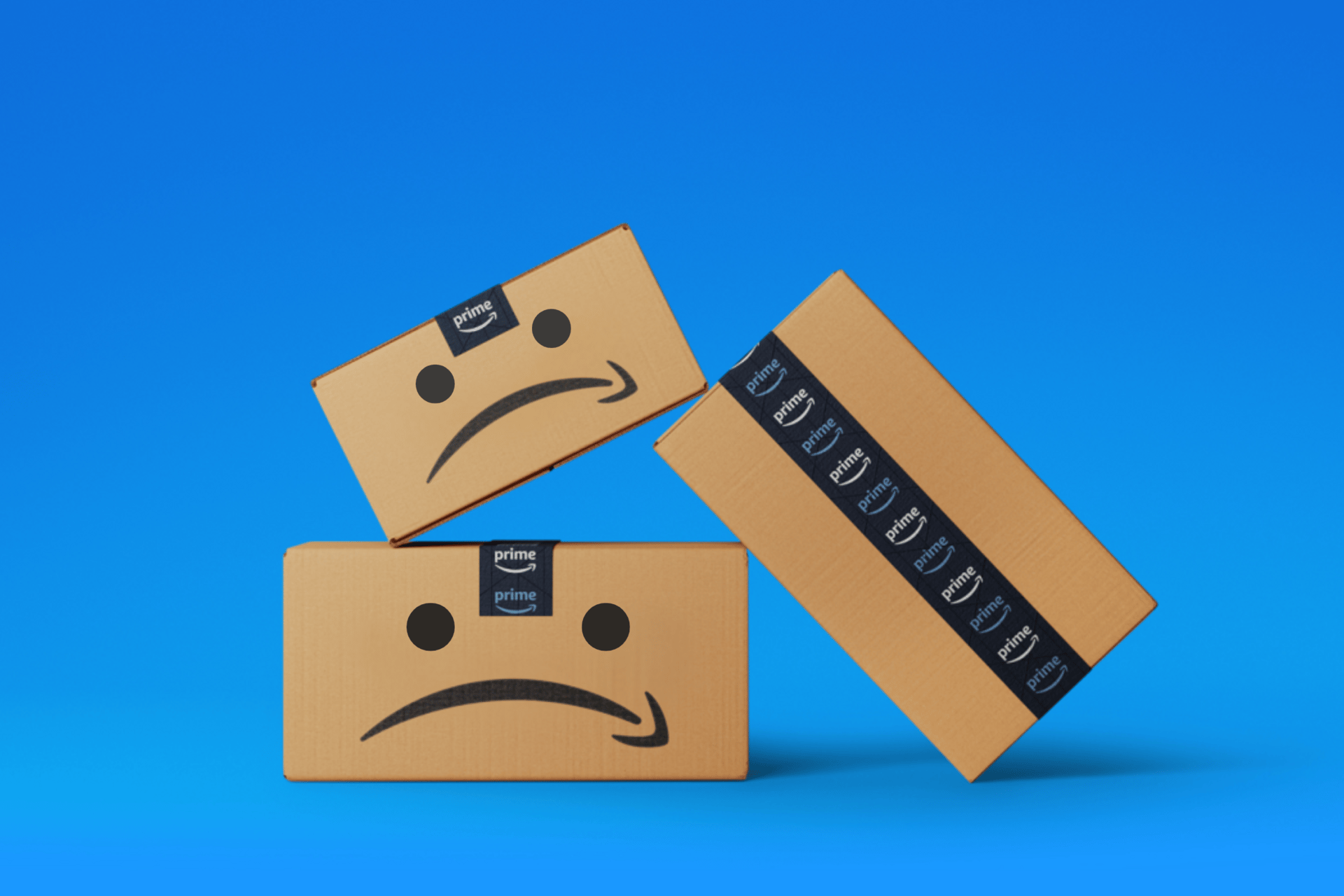
Walmart’s CEO says AI will reshape its workforce

David Paul Morris / Bloomberg via Getty Images
That’ll be sure to inspire productivity. At a recent employee conference, Walmart CEO Doug McMillon said that AI will fundamentally transform the company’s workforce, from cashiers to executives, within the next few years.
AI is going to change literally every job,
An AI evolution
Walmart, the world’s largest retailer, currently employs over 2.1 million workers globally. McMillon said that number isn’t likely to change within the next three years, but noted that the nature of those roles will change significantly.
In McMillon’s words, “maybe there’s a job [at Walmart] that AI won’t change, but I haven’t thought of it.”
What does that mean? The CEO admitted that some roles will be eliminated, but others will be created or transformed. For example:
Walmart already uses AI “agents” in customer service, supply chain analytics, and internal operations, which has sunsetted some jobs, but…
It also created positions the company calls “agent builders,” or workers who help build and monitor AI tools.
Walmart said its already looking at internal data to figure out which jobs might grow, shrink, or stay the same, and says it plans to retrain employees so they can “make it to the other side” and adapt to the adjustments.
These changes won’t just hit Walmart
McMillon joins a whole laundry list of CEO’s commenting on the AI revolution and what it means for their employees:
Last week, Accenture CEO Julie Sweet said workers who don’t adapt to AI will be “exited.”
Salesforce CEO Marc Benioff claimed this summer that AI allowed the software company to let go of 4,000 support positions.
In June, Ford CEO Jim Farley predicted that half of all US white-collar jobs could ultimately be replaced by AI.
Despite the layoffs… research indicates that AI will eventually create more jobs than it eliminates, though the transition will be uneven across different industries and require workers to develop new skills.

Electronic Arts just completed the largest leveraged buyout in history

Designed by NextGen News
Maybe this will finally help stop them from recycling games. Electronic Arts, the video game giant behind The Sims, Madden, FIFA, Battlefield, and more, has agreed to go private in a deal valued at around $55 billion.
The landmark deal is now the largest leveraged buyout in history.
Who’s buying EA?
The group behind the deal includes Silver Lake, Saudi Arabia’s Public Investment Fund (which already owns 10% of EA), and Affinity Partners, the investment firm managed by Jared Kushner, President Trump’s son-in-law.
Under the historic agreement:
EA shareholders will be bought out at $210 per share, roughly 25% above where the stock traded before deal rumors leaked.
The structure will combine roughly $36 billion in equity with $20 billion in debt financing, largely arranged by JPMorgan.
Why is this a big deal? The acquisition rockets past the long-standing record held by TXU Energy’s buyout in 2007, setting a new standard for how big tech, media, and digital entertainment companies are financed in the private markets.
Investors want more video games
The move highlights the growing confidence investors have in the long-term value of major gaming franchises and IPs, especially at a time when gamers aren’t really looking for new titles.
So, why is EA a good bet?
Partly because the company started focusing on longer-lasting “live-service” games like Apex Legends, which are free to play but drive profits through microtransactions and constant content updates.
This year, 75% of the company’s total revenue was brought in through live-service games alone.
However, the deal still carries risks: The $20 billion debt load will put a lot of pressure on financial performance, meaning EA will have to consistently put out quality games that people are willing to buy. If they don’t, paying off that massive debt will become a rather cumbersome burden.

Scientists made robots from human lung cells

Carnegie Mellon University
Sometimes you read a headline that truly makes you think we’re living in the future. Researchers at Carnegie Mellon, a private research university, have developed a new class of microscopic, living robots built from human lung stem cells, marking a transformative leap in biotechnology.
How does that even work?
These tiny, microscopic entities are a type of biobots, or machines that combine living biological components, like cells or tissue, with synthetic robotic parts to move and perform tasks (see breakdown).
However, unlike previous biobots (which have long moved using muscle fibers), this new class moves using cilia, tiny hair-like structures that beat rhythmically, like they do in the lungs.
This new class of biobots, aptly named CiliaBots, is a groundbreaking innovation:
By disabling some of the cilia in the bot’s tissue, similar to “removing oars from certain spots on a boat,” it allows researchers to control the robot’s direction and movement patterns.
In addition, the CiliaBots are made entirely from biological materials, making them both biocompatible and biodegradable, perfect for medical uses where you don’t want the body fighting back or dealing with lingering waste.
Why is this so revolutionary?
Being able to tune the CiliaBots movement opens up a whole new realm of medical possibilities, including the ability to send drugs to targeted spots within the body.
This would allow doctors to maximize the effectiveness of medicine while minimizing the risk to the patient, which is key for serious conditions like cancer and chronic pain.
That said, there are challenges ahead: Scientists must figure out how to scale production, maintain reliable long-term control, and make them resilient enough to live in living tissue environments… all while ensuring patient safety.
In partnership with Mindstream
Turn AI Into Your Income Stream
The AI economy is booming, and smart entrepreneurs are already profiting. Subscribe to Mindstream and get instant access to 200+ proven strategies to monetize AI tools like ChatGPT, Midjourney, and more. From content creation to automation services, discover actionable ways to build your AI-powered income. No coding required, just practical strategies that work.

Amazon just paid the largest civil penalty in history

Designed by NextGen News
I think Bezos would’ve preferred detention. Late last week, Amazon reached a $2.5 billion settlement with the Federal Trade Commission (FTC) to resolve claims that it deceived consumers into signing up for Prime subscriptions and then intentionally made it difficult to cancel.
Tricky tactics
According to the FTC, Amazon used confusing, tricky, and misleading page designs to lock nearly 40 million consumers into recurring subscriptions.
Many customers experienced a cancellation path called the “Iliad Flow” (see explanation), which stretched across four pages, six clicks, and 15 options.
Will consumers get their money back? The company will pay a $1 billion penalty (the largest ever fined by the FTC) and return $1.5 billion to affected consumers. Despite the historic proportions of the fine, it’s still a drop in the bucket for Amazon:
In total, it amounts to around 0.1% of the company’s $2.3 trillion market value.
In the first half of 2025 alone, Prime pulled in almost $24 billion in subscription revenue from over 200 million members.
Despite the evidence presented, Amazon did not admit to any wrongdoing.
Cancelling will look different: While Amazon updated its subscription process in 2023, the settlement requires that the company make cancellation as easy as sign-up, and that it will clearly disclose terms, costs, and renewal details going forward.

Americans aren’t reading for fun anymore and it’s a problem

Designed by NextGen News
Well, except for the people on BookTok. In August, a study from University College London and the University of Florida found that Americans who read for pleasure fell by 40% in the past two decades.
Now, adult reading programs and school clubs are looking to bring the love of reading back.
I’d rather be scrolling
Last month’s study took data from the American Time Use Survey, drawing on responses from over 236,000 Americans of all ages between 2003 and 2023, and the results were shocking:
In 2004, around 28% of people reported reading for non-work/non-school reasons.
By 2023, that figure had fallen to nearly 16%. That’s roughly a 3% drop per year.
The authors of the study said the “deeply concerning” decline has several possible causes, including the rise of social media, less leisure time, economic pressures, and limits in access to reading materials.
It’s a big issue: Reading for pleasure is linked to increased empathy, improved mental health, creativity, and, of course, lifelong learning.
So, what’s being done about it?
The trend has people, particularly educators and parents, worried that Americans are losing not just skills, but the pleasure and confidence that drives lifelong readers.
In response, some schools in Florida created a free at-home book delivery program for students to read books that interest them.
Book club programs are also seeing an increase in popularity, especially among Gen Z and Millennials, driven by social media trends to stop people from scrolling so often.
Similar reading programs can be found popping up across the country as many yearn for kids and adults alike to pick up a book (and actually want to read it) in the increasingly digital age.
There’s a silver lining in the reading plunge: Physical book subscription sales skyrocketed 234% and book club events surged 31% last year, showing there’s a home for potential bookworms; they just have to find it.
How did you like today's newsletter?

Catch up on this week’s weird news

GIF via GIPHY
> Tony Hawk’s skateboard from the historic 1999 “900” trick sold at auction for $1.15 million, breaking the record for most expensive skateboarding memorabilia ever sold.
> Amazon’s 2025 hardware event begins today, where the company is expected to debut new Echo devices, a color Kindle Scribe, updates to Alexa, and possibly a new TV.
> An Egyptian wrestler pulled a 700-ton ship across water using only his teeth and later added a second vessel to bring the total to 1,150 tons… sending prayers up for his dentist.
> A kindergarten in Australia asked parents to pay $2,200 to take home their toddler’s art portfolios, before reversing the decision following public backlash.
> 58 million pounds of corn dog products are being recalled across the US because they contain pieces of wood, with several customers reporting injuries.







